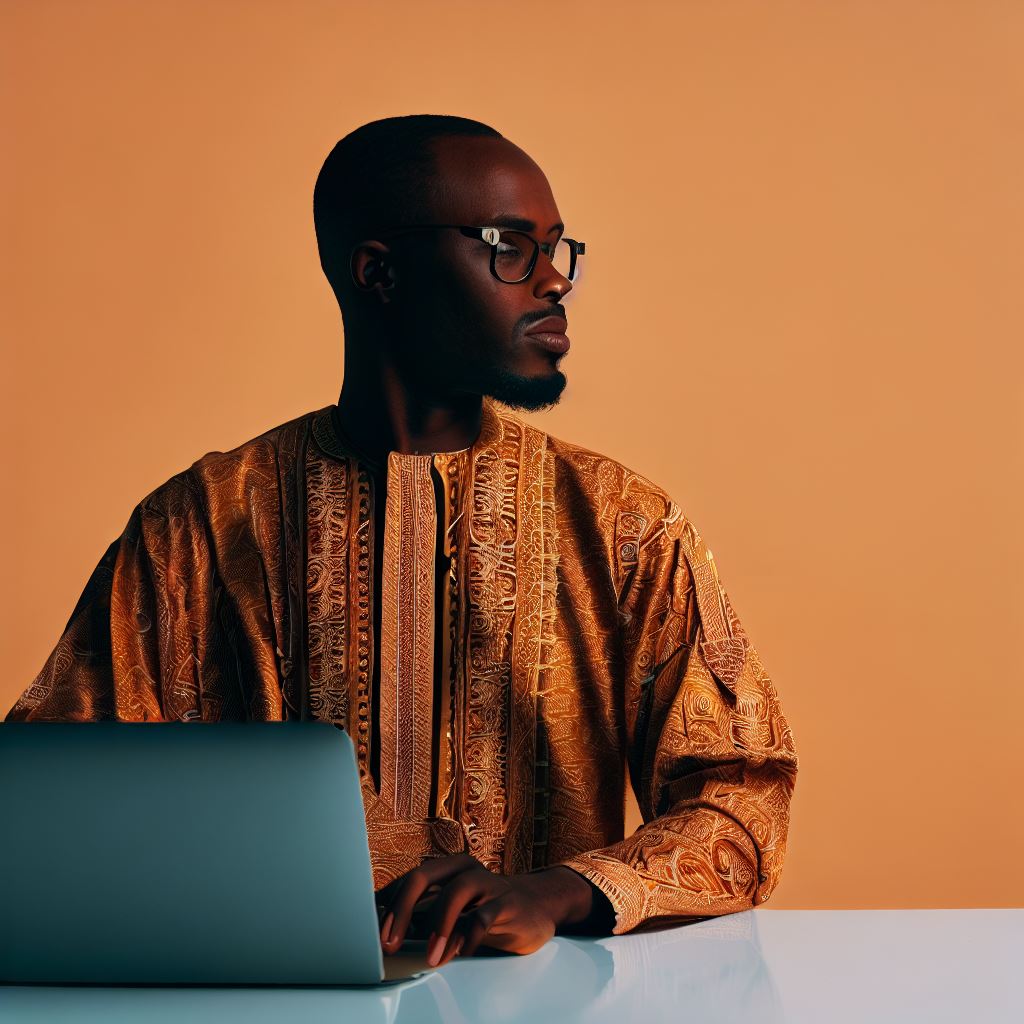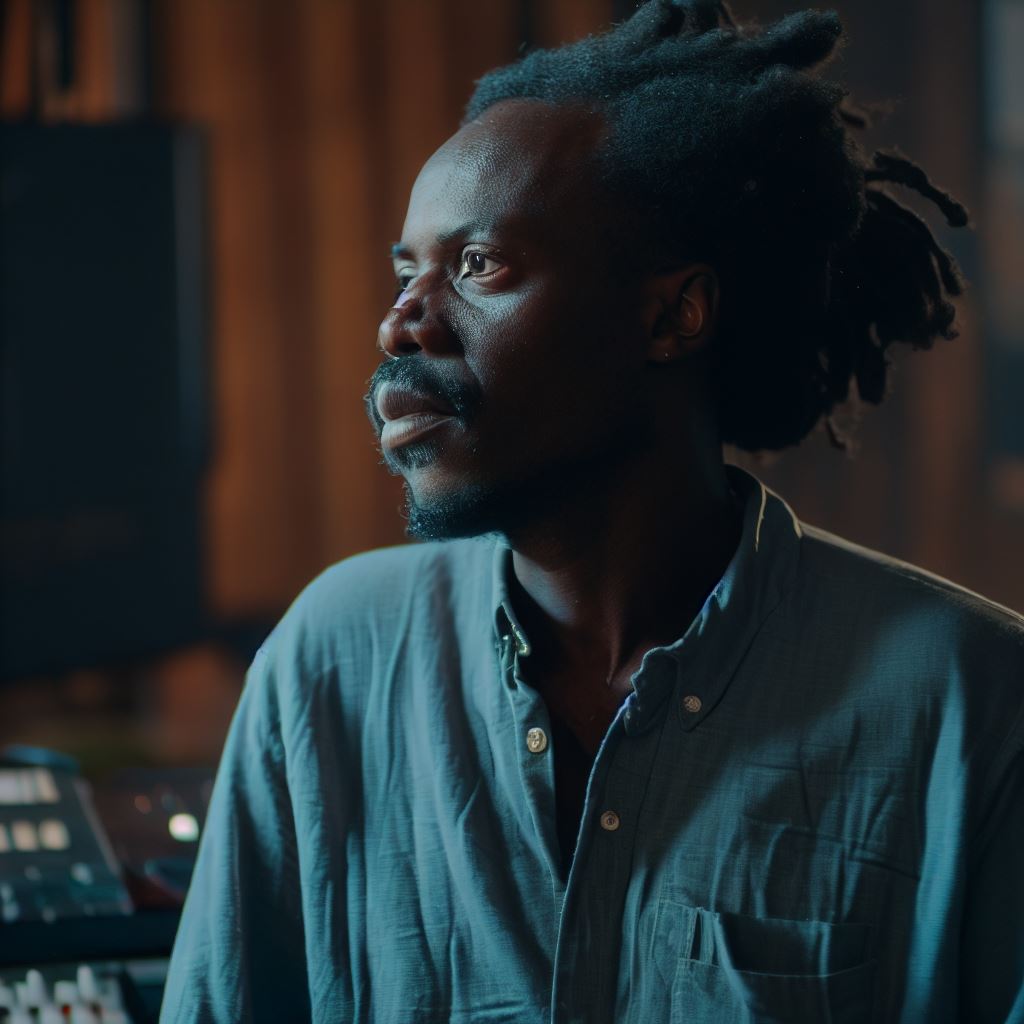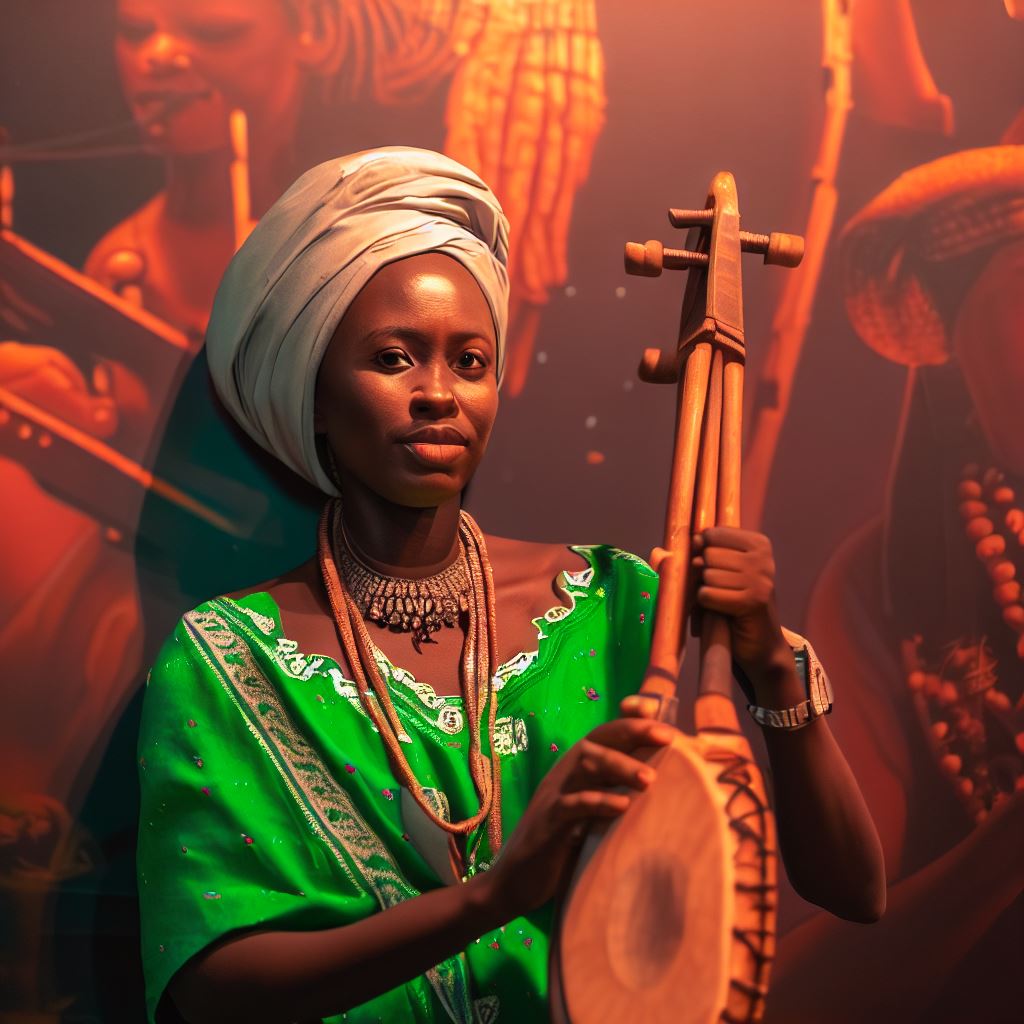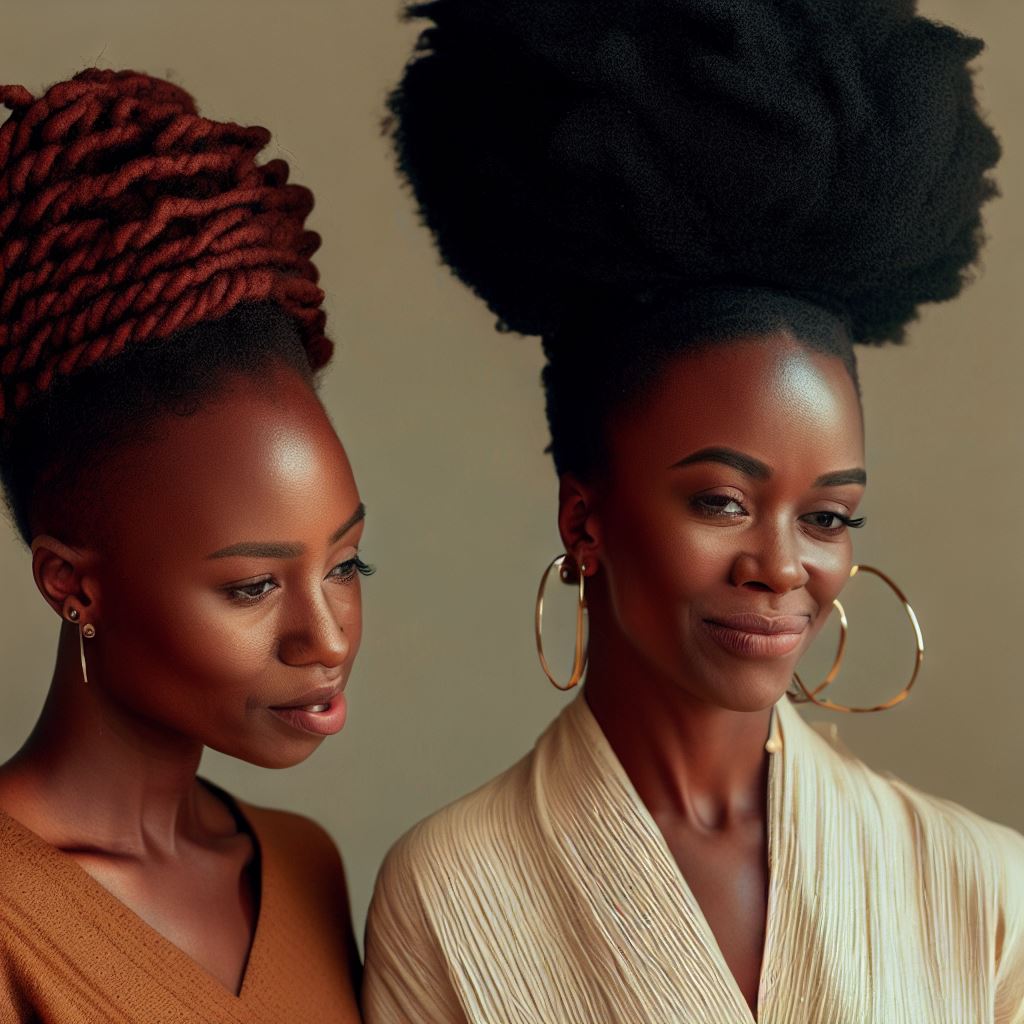Introduction
Let’s explore how to navigate copyright as a Nigerian composer.
Copyright is crucial for Nigerian composers as it protects their original musical creations from unauthorized use.
Nigeria, a country renowned for its rich cultural heritage and diverse artistic expressions, stands as a burgeoning hub for creative talent, particularly in the realm of music composition.
With a kaleidoscope of genres spanning Afrobeat, Highlife, Juju, and more, Nigerian composers wield a unique power to captivate global audiences.
However, amid this thriving creative landscape lies the intricate web of copyright laws, which serve as both a shield and a sword for composers seeking to protect their intellectual property while also drawing inspiration from their cultural roots.
This blog post provides valuable insights on navigating copyright as a Nigerian composer, discussing its significance and offering practical tips for composers to safeguard their work.
This guide aims to illuminate the path for Nigerian composers, offering invaluable insights and strategies to navigate the intricate terrain of copyright, enabling them to flourish in their artistic endeavors while safeguarding their creative legacy.
From understanding the nuances of intellectual property rights to exploring licensing and collaboration opportunities, this comprehensive guide will equip Nigerian composers with the knowledge and tools needed to thrive in the vibrant world of music composition, all while respecting and upholding the legal frameworks that underpin their craft.
Understanding Copyright Laws in Nigeria
A. The basics of copyright law and its purpose
Nigerian composers, like composers worldwide, must navigate copyright law to protect their work and ensure they receive the recognition and compensation they deserve.
Understanding the basics of copyright law in Nigeria is essential for composers to safeguard their rights and livelihood.
B. The key copyright laws in Nigeria
Copyright law in Nigeria, governed primarily by the Copyright Act of 1988, serves to protect the rights of creators.
It grants exclusive rights to composers, authors, artists, and other creators, enabling them to control the reproduction, distribution, public display, adaptation, and translation of their works.
This legal framework encourages creativity and innovation while safeguarding the economic and moral rights of creators.
The Nigerian Copyright Commission, established under the Copyright Act, is responsible for administering and enforcing copyright laws in the country.
It acts as a regulatory body, ensuring compliance with copyright regulations and resolving disputes related to infringement.
C. Rights and protections offered by copyright law in Nigeria
Composers in Nigeria enjoy various rights and protections under copyright law.
They have the exclusive right to reproduce their musical compositions, control the distribution of their works, and publicly perform or display them.
This allows composers to monetize their creations through licensing and royalties.
Moreover, copyright law safeguards the moral rights of composers.
They have the right to be identified as the authors of their works and can object to any modification, distortion, or mutilation of their compositions that may harm their reputation.
This protection ensures that their artistic integrity remains intact.
It is important for Nigerian composers to register their works with the Nigerian Copyright Commission to enhance legal protection.
Registration provides evidence of ownership and simplifies the process of enforcement in case of infringement.
In case of copyright infringement, composers can seek civil remedies, such as injunctions and damages.
They can also file criminal charges against infringers, which may result in fines or imprisonment.
It is crucial for composers to promptly identify and address any unauthorized use or reproduction of their musical works to safeguard their rights and prevent financial loss.
In fact, copyright law in Nigeria offers vital protections and rights to composers.
By understanding and proactively navigating copyright laws, Nigerian composers can ensure the preservation of their creative works, receive appropriate compensation, and maintain control over the use and distribution of their musical compositions.
Read: The Power of Music in Nigerian Film Narratives
Steps to Protect Your Musical Works
As a Nigerian composer, protecting your musical works is essential to safeguard your creative efforts and ensure that you receive proper recognition and compensation.
Navigating copyright laws in Nigeria can be complex, but by following these steps, you can enhance the security of your compositions.
A. Registering your work with the Nigerian Copyright Commission
One of the most effective ways to protect your musical works is by registering them with the Nigerian Copyright Commission (NCC).
This process involves filling out an application, providing detailed information about your work, and paying the required fees.
The NCC will then review your application and issue a certificate of registration if approved.
Registering your work brings several benefits and legal advantages.
Firstly, it provides legal proof of ownership, making it easier to establish your rights in case of infringement.
Additionally, registration enables you to sue for statutory damages and attorney’s fees, which can significantly increase the compensation you receive if someone unlawfully uses your music.
Lastly, registration creates a public record of your work, making it easily searchable and recognized by others in the industry.
B. Keeping thorough documentation of your creative process
In addition to registration, documenting your musical works is crucial for protection.
Keeping thorough records of your creative process can serve as evidence in case of any disputes or infringement claims.
It is recommended to maintain dated drafts of your compositions, record sessions, and keep detailed notes about the inspirations and intentions behind your music.
This extensive documentation can strengthen your claims and protect your intellectual property rights.
To document your works effectively, consider using a combination of digital and physical formats.
Store your drafts, recordings, and notes securely, both on your computer and in physical files.
Back up your digital files regularly to prevent loss or accidental deletion.
Additionally, consider using timestamped online platforms or copyright management systems that provide additional proof of creation and ownership.
C. Understanding fair use and public domain in Nigeria
Fair use is a crucial concept to comprehend as a Nigerian composer. It allows limited use of copyrighted material without seeking permission from the copyright owner.
However, fair use has its limitations to prevent unjust exploitation.
It is important to understand the factors that determine whether a particular use is fair, such as the purpose of the use, the nature of the copyrighted work, the amount used, and the effect on the market.
Public domain works in Nigeria refer to creative works that are no longer under copyright protection.
These works can be freely used by anyone without permission or payment of royalties.
Public domain works include those that have expired copyright or those that the creators have dedicated to the public domain.
It is essential to verify the copyright status of a work before using it to avoid infringement.
By following these steps and understanding the intricacies of copyright protection in Nigeria, you can navigate the legal landscape as a Nigerian composer successfully.
Remember to register your works, document your creative process, and respect the boundaries of fair use and public domain.
These measures will ensure that your musical works remain secure and that you receive the recognition and compensation you deserve.
Read: Film Composing: A Career with Global Impact

Handling Copyright Infringement
A. Recognizing copyright infringement
Copyright infringement can take various forms, such as unauthorized use, reproduction, or distribution of copyrighted work.
As a Nigerian composer, it is essential to be aware of common scenarios where your copyright may be infringed upon.
B. Taking appropriate action when copyright is infringed upon
1. Necessary steps to address infringement
If you suspect copyright infringement, the first step is to gather evidence of the alleged infringement.
Document any similarities between your original composition and the allegedly infringing work.
Consult with a qualified intellectual property lawyer who specializes in copyright infringement cases.
Provide your lawyer with all the relevant information, including copies of your copyrighted work and evidence of the infringement.
Your lawyer will guide you through the necessary legal steps to address the infringement, such as sending a cease and desist letter.
If the infringement persists, your lawyer may recommend filing a lawsuit to protect your rights and seek appropriate remedies.
Remember, it is crucial to act promptly when your copyright is infringed upon. Delaying action may weaken your case and limit the available legal options.
2. Valuable resources and contact information for Nigerian composers
Additionally, it is essential to have access to reliable resources and legal assistance to navigate the complexities of copyright infringement in Nigeria.
Here are some valuable resources and contact information for Nigerian composers:
- Nigeria Copyright Commission (NCC): The NCC is the government agency responsible for copyright protection in Nigeria. Visit their website at www.copyright.gov.ng for valuable information and updates on copyright laws.
- Nigerian Bar Association (NBA): The NBA can assist you in finding a qualified intellectual property lawyer who specializes in copyright infringement cases. Visit their website at www.nigerianbar.org.ng for their directory of lawyers.
- Nigeria Entertainment Lawyers Association (NELA): NELA is an organization that focuses on legal issues in the entertainment industry. They provide resources and guidance for composers and other creative professionals. Visit their website at www.nelaworld.com for more information.
By recognizing copyright infringement and taking appropriate action, Nigerian composers can protect their creative work and ensure their rights are respected.
Stay informed, seek legal assistance when needed, and continue creating beautiful music!
Read: Collaborating as a Composer in Nigerian Cinema
Collaborating with Others while Protecting Your Copyright
A. Copyright considerations when collaborating
Collaborative endeavors in the realm of creative arts, particularly in music composition, are a powerful means to amalgamate diverse talents, perspectives, and inspirations.
However, amidst the creative synergy, it is crucial to navigate the intricate landscape of copyright considerations to ensure a harmonious and legally sound partnership.
Successful collaborations in music composition necessitate a robust understanding of copyright considerations.
By proactively addressing ownership, licensing, revenue sharing, and dispute resolution, collaborators can forge partnerships that not only yield exceptional creative works but also stand on a solid legal foundation, ensuring the longevity and prosperity of their joint endeavors.
B. Strategies for protecting your rights in collaborative projects
Protecting one’s rights in collaborative projects is a critical aspect of any creative endeavor.
It involves establishing clear boundaries, fostering open communication, and formalizing agreements to ensure that each contributor’s contributions are recognized and respected.
Keeping meticulous records of contributions and agreements is paramount in any collaborative endeavor, especially in the realm of music composition where multiple creative minds converge.
Here are tips to help collaborators effectively track their contributions and agreements, fostering transparency, accountability, and legal clarity throughout the collaborative process.
- Establish a Centralized Documentation System: Create a designated digital or physical space where all relevant documents, emails, contracts, and notes are stored. This system should be easily accessible to all collaborators and organized in a clear, intuitive manner.
- Detailed Meeting Minutes: Record detailed minutes during meetings, including discussions, decisions, and action items. Specify who was present, what was discussed, and any agreements reached. Distribute these minutes to all collaborators promptly after the meeting.
- Utilize Version Control for Files: When working on digital files, employ version control systems or file-sharing platforms that track revisions. This ensures that changes and contributions are logged, allowing for easy reference and retrieval of earlier versions if needed.
- Maintain a Contributions Log: Create a contributions log that documents each collaborator’s specific contributions to the project. Include details such as lyrics written, melodies composed, arrangements made, and any other creative input. This log serves as a tangible record of individual contributions.
Read: Case Study: Successful Film Scores in Nigeria
Conclusion
In this blog post, we have discussed the key points to navigate copyright as a Nigerian composer.
Nigerian composers should approach copyright with confidence and take necessary steps to protect their work.
For specific copyright concerns, it is recommended to seek professional advice to ensure compliance and protection.




